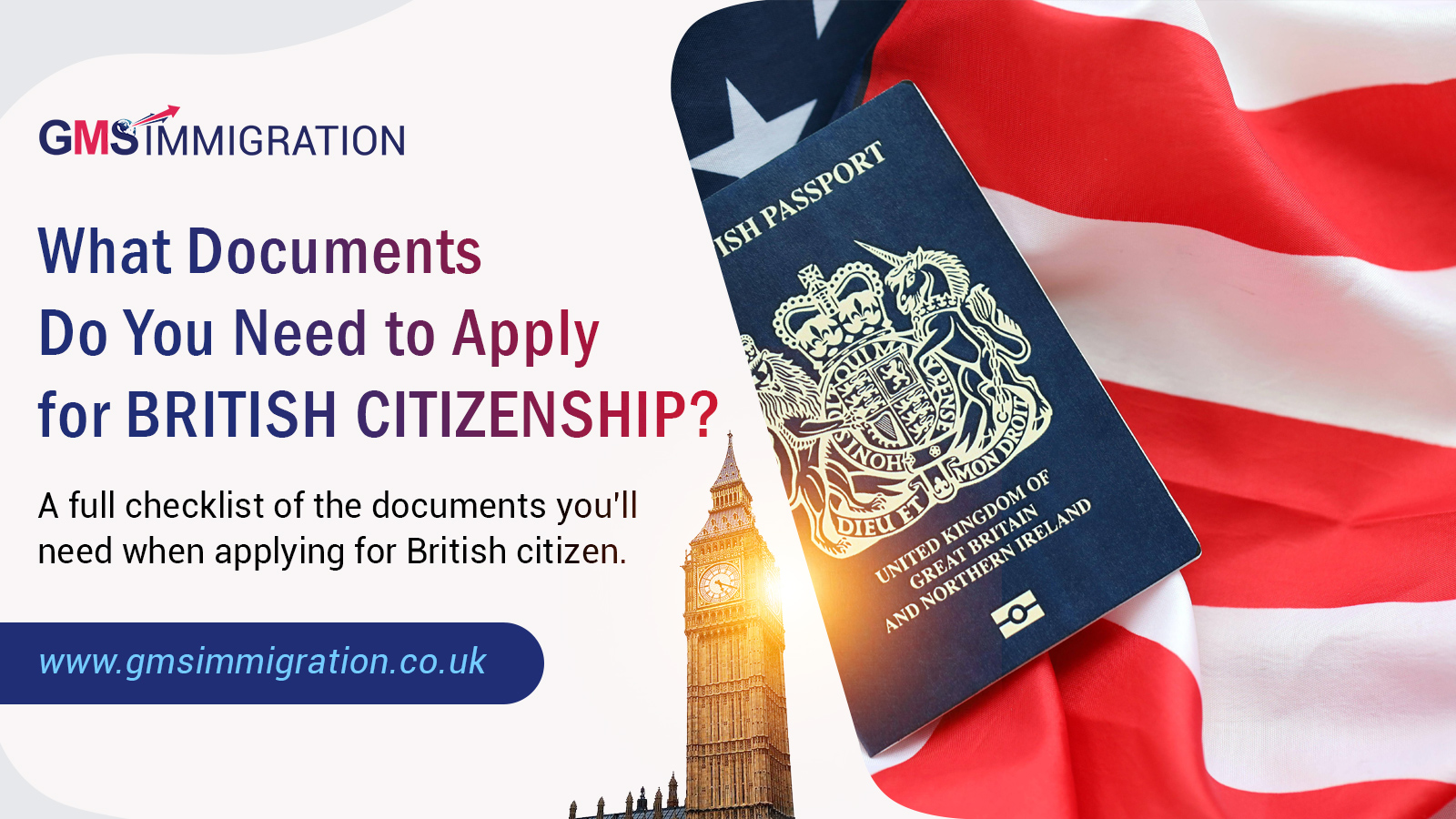


Applying for British citizenship is a big step toward securing your future in the UK. It allows you to enjoy full rights as a British national, including the right to vote, travel freely, and apply for a British passport. However, many applicants get stuck when it comes to understanding which documents are required for British citizenship.
In this guide, we’ll break down all the essential documents, give you practical tips, and point you to reliable resources so you can submit a strong application with confidence.
Here’s a full checklist of the documents you’ll need when applying for naturalisation as a British citizen:
You must provide documents to prove who you are and that you’re legally in the UK. These may include:
For more details about legal status and immigration history, check the official UK Government guidance on citizenship applications.
Applicants must prove they have lived in the UK for the required qualifying period (usually 5 years, or 3 years if applying as a spouse of a British citizen). Evidence includes:
This ties directly with requirements for Indefinite Leave to Remain, which is often the final step before applying for citizenship.
You must demonstrate knowledge of English, Welsh, or Scottish Gaelic. Accepted documents include:
For guidance on accepted English tests, see the UKVI approved test list.
Another crucial document is the Life in the UK Test pass certificate. Without this, your application will be rejected.
If you’re unsure how to prepare, our British Citizenship services include expert guidance to help you pass with ease.
The Home Office requires applicants to show they are of good character. Documents may include:
If applying as the spouse of a British citizen, you must include your marriage or civil partnership certificate.
For more details, see our guide on the UK Spouse Visa and how it connects to long-term settlement.
You must provide the details of two referees who have known you for at least three years. One should be a person of professional standing, and the other a British passport holder.
Applying for British citizenship can feel overwhelming, but with the right guidance, it becomes a smooth process. Ensuring that all documents for British citizenship are correct and complete is the key to avoiding delays or refusals.
At GMS Immigration, our IAA-certified advisers provide expert support for every stage of the journey — from preparing your documents to submitting a strong application.
Contact our experienced and IAA certified team today for a one-on-one consultation.
📞 Call: 020 8059 0483
📱 WhatsApp: +44 7455 861135
🌐 Visit GMS Immigration

Learn the difference between a UK spouse visa and a UK fiance visa.

Learn the top 10 UK visa interview questions with answers to boost your chances of success.

Learn how to write a professional Letter of Invitation for a UK visa with our step-by-step guide.

Free immigration advice services that can help you understand your options before taking the next step.

Was your UK visa refused? Learn the next steps, including appeal options, reasons for refusal, and how to reapply.

GMS Immigration offers expert visa and immigration services for families, workers, students, and professionals.

Learn how to switch from limited leave to Indefinite Leave to Remain (ILR)...

This guide is here to help you manage both your wedding planning and immigration requirements effectively..

Before applying for a UK Spouse Visa, it’s important to understand the essential immigration rules.

Married to a British citizen? Here’s your complete guide to applying for British citizenship in 2025
You’ll need your passport, biometric residence permit (if applicable), proof of residence in the UK, Life in the UK Test certificate, English language certificate, and documents to prove your lawful stay such as visas or Home Office letters. You may also need marriage or birth certificates if applying through family routes.
Yes, if you are applying based on residency and employment, payslips, P60s, or HMRC records may be required to show lawful residence and compliance with UK tax rules.
Most applicants must show 5 years of continuous residence in the UK before the date of application. For those married to a British citizen, the requirement is usually 3 years.
Yes, utility bills, council tax statements, tenancy agreements, or bank statements can be accepted as additional proof of residence in the UK.
Yes, the Home Office usually requires original documents. Photocopies are not accepted unless certified by a professional or official body.
Yes, unless you are exempt (for example, due to age or disability), the Life in the UK Test certificate is a compulsory document for your British citizenship application.
No, children under 18 generally don’t need to pass the English test or the Life in the UK Test, but you must still provide their birth certificate, passport, and proof of parents’ immigration status.